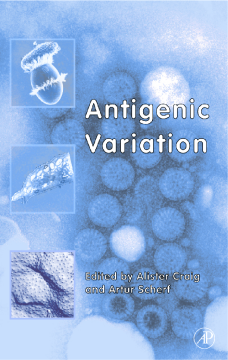
Additional Information
Book Details
Abstract
The topic of antigenic variation is important in both biology and medicine. It is of enormous interest, as it describes the process(es) whereby microorganisms 'shift shape', by genetic rearrangement or otherwise. In medical terms, this has a major impact on the infectious disease process, since the immune system has great difficulty in keeping up with this variation, and thus eliminating the infectious agent. Antigenic variation is a major method by which microbes evade the immune response, and persist in the body.
The broad scope of the book appeals to all those working in the field of infectious disease, immunology of infection, pathogenesis, molecular biology and also to evolutionary biologists. Topics covered include not only bacterial species, and viruses such as influenza, HIV, Rotavirus, but also eukaryotic parasites - one of the most fascinating groups of organisms exhibiting this behaviour.
Comprehensive coverage of antigenic variation from viruses to parasites
Discussions devoted to molecular mechanisms of host evasion
Detailed descriptions of host/pathogen interactions
"It provides an excellent review, drawing from examples as diverse as HIV...a useful addition to the bookshelf."
-MICROBIOLOGY TODAY (May 2004)
